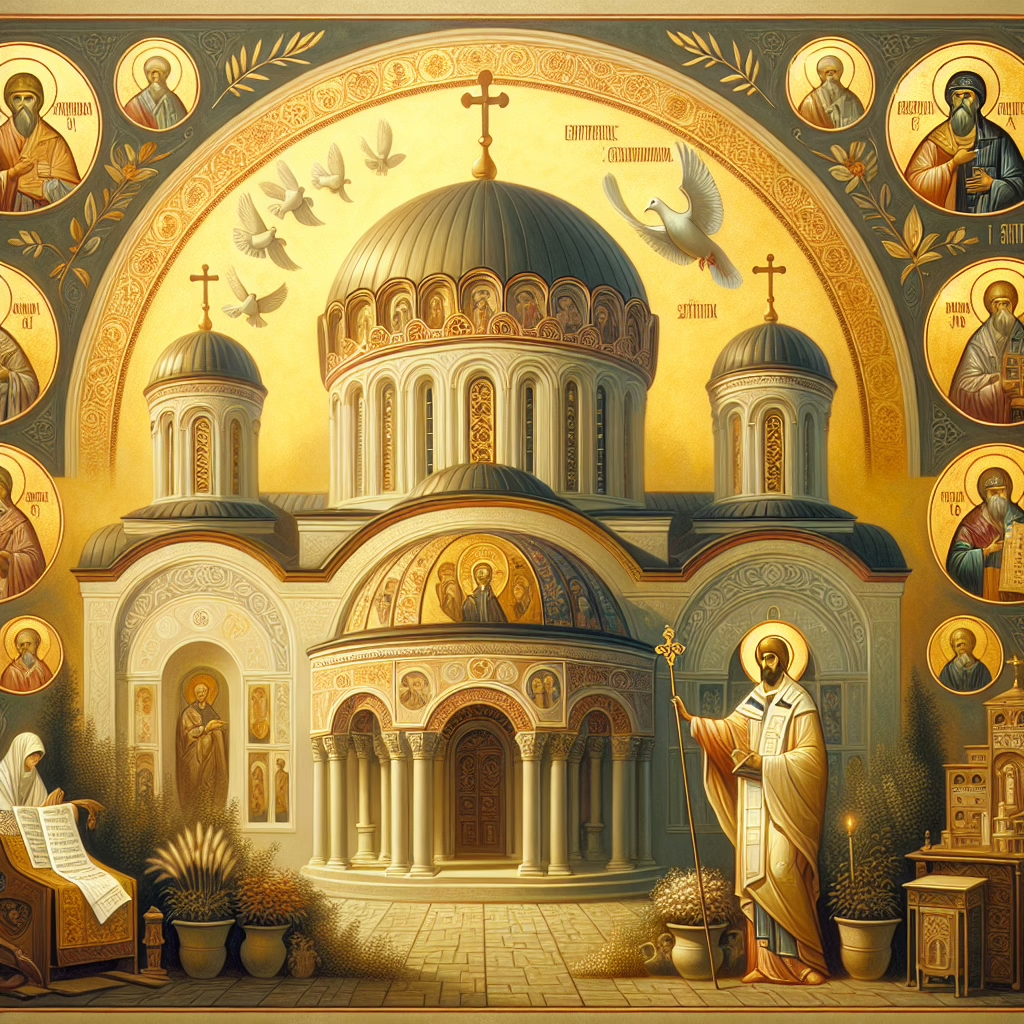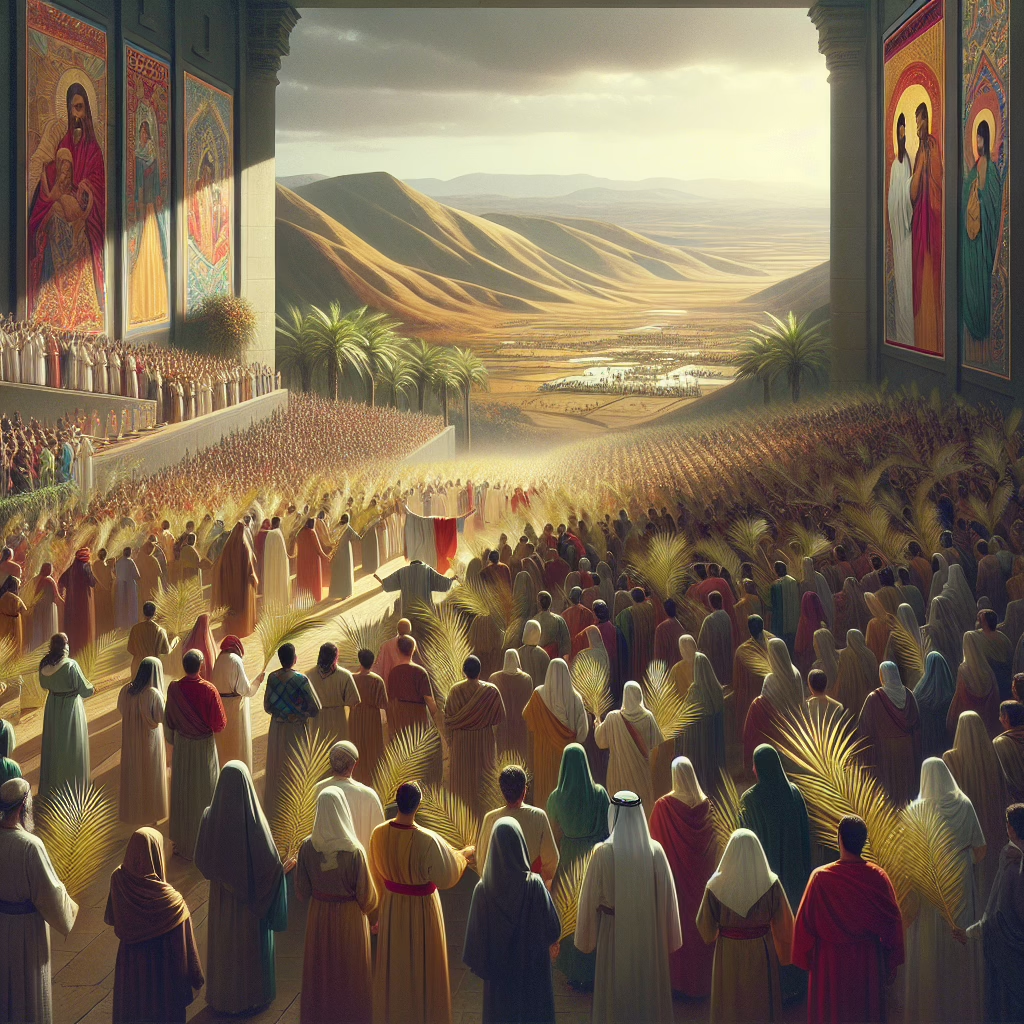St. Robert Bellarmine: The Defender of Catholic Doctrine – A Comprehensive Guide
Introduction: Unveiling the Life and Significance of St. Robert Bellarmine
"To be a Jesuit is to be a warrior of Christ," once remarked John Carroll, and few embodied this spirit more fully than St. Robert Bellarmine. A towering intellect of the Counter-Reformation, Bellarmine's life was a testament to the power of faith informed by reason and unwavering devotion to Catholic doctrine.
Born in 1542 in the charming town of Montepulciano, Italy, Robert Bellarmine would grow to become one of the most influential figures in the Catholic Church during a time of great upheaval. His contributions as a Jesuit, theologian, and cardinal would leave an indelible mark on Catholic thought and apologetics that resonates to this day.
In this comprehensive guide, we will explore the life, teachings, and enduring legacy of St. Robert Bellarmine. From his formative years to his pivotal role in defending Church doctrine, we'll uncover the depths of his intellectual rigor and spiritual wisdom that continue to inspire and guide the faithful.
1. Life and Significance of St. Robert Bellarmine
1.1 Early Years and Formation in Montepulciano
St. Robert Bellarmine's journey began in the picturesque Tuscan town of Montepulciano. Born into a noble family, young Robert was immersed in an environment that valued both faith and education. His uncle, Marcello Cervini, who would later become Pope Marcellus II, played a significant role in shaping the young Bellarmine's early spiritual formation.
From an early age, Bellarmine displayed an exceptional intellect and a deep devotion to the Catholic faith. His early education, steeped in the classics and Christian doctrine, laid the foundation for what would become a life dedicated to the pursuit of truth and the defense of Catholic teachings.
In 1560, at the age of eighteen, Bellarmine made a decision that would define the course of his life: he joined the Society of Jesus. This choice not only aligned with his spiritual calling but also provided him with the rigorous academic training that would shape him into one of the Church's most formidable intellectuals.
As a Jesuit novice, Bellarmine's academic prowess quickly became evident. He excelled in his studies of philosophy and theology, demonstrating a remarkable ability to grasp complex theological concepts and articulate them with clarity and precision. This talent would serve him well in his future role as a defender of Catholic doctrine against the challenges posed by the Protestant Reformation.
2. Relevance to Catholic Faith and Traditions
2.1 Contributions to Catholic Theology and Doctrine
St. Robert Bellarmine's impact on Catholic theology and doctrine cannot be overstated. His unwavering commitment to Church teachings, coupled with his intellectual rigor, made him a formidable defender of the faith during the tumultuous period of the Counter-Reformation.
One of Bellarmine's most significant contributions was his masterwork, "Disputationes de Controversiis Christianae Fidei adversus Hujus Temporis Haereticos" (Disputations on the Controversies of the Christian Faith Against the Heretics of This Time). This comprehensive three-volume treatise addressed the major theological disputes of the day, providing a systematic defense of Catholic doctrine against Protestant challenges.
As Pope Benedict XVI noted, "St. Robert Bellarmine reminds us with great clarity that in the life of the Church there must be a necessary link between the content of the faith and its living expression." This sentiment encapsulates Bellarmine's approach to theology – not merely as an academic pursuit, but as a lived reality of faith.
Bellarmine's writings on ecclesiology, particularly his views on papal authority, have had a lasting influence on Catholic thought. He argued for a balanced understanding of papal power, affirming the Pope's supreme authority while also acknowledging the role of bishops and councils in the governance of the Church.
His work in apologetics set a new standard for engaging with opposing viewpoints. Bellarmine's method involved a thorough understanding of his opponents' arguments, followed by a systematic and charitable refutation based on Scripture, Church Fathers, and reason. This approach continues to influence Catholic apologetics to this day.
3. Key Events and Controversies in St. Robert Bellarmine's Life
3.1 Involvement in the Galileo Affair
One of the most notable and controversial episodes in St. Robert Bellarmine's life was his involvement in the Galileo affair. This complex interaction between science and faith highlighted Bellarmine's role as a defender of Church doctrine while also revealing his nuanced approach to new scientific discoveries.
In 1616, Galileo Galilei's advocacy for the heliocentric model of the universe, which posited that the Earth revolved around the Sun, came into conflict with the Church's traditional geocentric view. As a cardinal and the chief theologian of the Roman Inquisition, Bellarmine was tasked with addressing this challenge to established doctrine.
Bellarmine's approach to the Galileo affair demonstrated both his commitment to Church teaching and his openness to scientific inquiry. He wrote to Galileo, stating:
"To say that, assuming the earth moves and the sun stands still, all the appearances are saved better than with eccentrics and epicycles, is to speak well; there is no danger in this, and it is sufficient for mathematicians. But to want to affirm that the sun really is fixed in the center of the heavens and only revolves around itself without traveling from east to west, and that the earth is situated in the third sphere and revolves with great speed around the sun, is a very dangerous thing."
This statement reflects Bellarmine's careful distinction between hypothetical scientific models and definitive statements about reality. He was willing to consider Galileo's ideas as a mathematical model but was cautious about accepting them as absolute truth, especially when they seemed to contradict Scripture.
Bellarmine's role in this controversy highlights the challenges faced by the Church in reconciling new scientific discoveries with traditional interpretations of Scripture. His approach, which emphasized caution and the need for conclusive proof before overturning established doctrine, would influence the Church's engagement with science for centuries to come.
4. Lessons and Teachings from St. Robert Bellarmine
4.1 Impact on the Faithful and Challenges Faced
St. Robert Bellarmine's life and teachings offer profound lessons for the faithful, particularly in navigating the relationship between faith and reason. His unwavering commitment to Catholic doctrine, combined with his intellectual rigor, provides a model for engaging with challenging questions while remaining true to one's faith.
One of the key lessons from Bellarmine's life is the importance of a well-formed intellect in service of faith. As he once wrote, "The school of Christ is the school of charity. On the last day, when the general examination takes place… Love will be the whole syllabus." This quote emphasizes that while intellectual pursuits are valuable, they must ultimately be guided by and serve the greater purpose of Christian love.
Bellarmine's approach to controversial issues, such as the Galileo affair, teaches us the value of prudence and careful discernment. He demonstrated that it is possible to be open to new ideas while still holding fast to essential truths of faith. This balance is particularly relevant in our modern context, where rapid scientific and technological advancements often challenge traditional understandings.
For contemporary Catholics, Bellarmine's example encourages a deep engagement with the teachings of the Church. He shows us that faith is not blind acceptance, but a reasoned commitment that can withstand scrutiny and questioning. As Pope Benedict XVI observed, "St. Robert Bellarmine teaches us with great clarity that there must be a harmony between faith and life."
However, following Bellarmine's path is not without challenges. In an increasingly secular world, maintaining a strong faith while engaging with diverse viewpoints requires courage and discernment. The saint's life reminds us that this engagement, though difficult, is essential for a mature and vibrant faith.
5. Prayers, Devotions, and Practical Resources for Connection
5.1 Prayer to St. Robert Bellarmine
Fostering a connection with St. Robert Bellarmine can deepen one's faith and provide inspiration for intellectual and spiritual growth. Here is a prayer seeking his intercession:
"O St. Robert Bellarmine, defender of the faith and beacon of wisdom,
intercede for us before the throne of God.
Grant us the clarity of mind and purity of heart to seek truth in all things.
Help us to balance faith and reason, as you did so brilliantly in your life.
Guide us in our studies and in our defense of the Church's teachings.
May we, like you, use our intellect in service of Divine Love.
Through Christ our Lord. Amen."
This prayer reflects Bellarmine's role as a patron of learning and his commitment to defending Catholic doctrine. By invoking his intercession, we seek guidance in our own intellectual and spiritual pursuits.
To deepen one's devotion to St. Robert Bellarmine, consider the following practices:
-
Study his writings: Engage with Bellarmine's works, such as "De Controversiis" or "The Mind's Ascent to God." These can provide profound insights into Catholic theology and apologetics.
-
Reflect on his virtues: Contemplate Bellarmine's qualities of intellectual rigor, humility, and devotion to the Church. Consider how these virtues can be applied in your own life.
-
Celebrate his feast day: Mark September 17, St. Robert Bellarmine's feast day, with special prayers or by learning more about his life and teachings.
- Seek his patronage: As a patron of catechists and Catholic academics, invoke Bellarmine's intercession in your studies or teaching endeavors.
6. Case Studies and Real-World Examples of Bellarmine's Relevance
6.1 Case Study on Deepening Understanding of Catholic Doctrine
Consider the case of Maria, a Catholic university student majoring in philosophy. As she encounters challenging ideas that seem to contradict her faith, she turns to the writings of St. Robert Bellarmine for guidance.
Maria begins by reading Bellarmine's "The Mind's Ascent to God," which helps her understand how reason and faith can work together in the pursuit of truth. She learns to approach philosophical questions with both intellectual rigor and a grounding in Catholic doctrine.
Inspired by Bellarmine's example, Maria starts a study group where students discuss contemporary issues in light of Church teachings. They use Bellarmine's methodical approach to analyze arguments and defend the faith, always striving to do so with charity and respect.
Through this process, Maria not only deepens her own understanding of Catholic doctrine but also develops the skills to engage in meaningful dialogue with those who hold different views. She finds that, like Bellarmine, she can be both intellectually curious and firmly rooted in her faith.
This case study illustrates how St. Robert Bellarmine's teachings remain relevant for Catholics navigating the intellectual challenges of the modern world. His example shows that faith and reason are not opposing forces but complementary paths to truth.
Conclusion: Embracing the Legacy of St. Robert Bellarmine
As we conclude our exploration of St. Robert Bellarmine's life and teachings, we are reminded of the enduring impact this great saint has had on the Catholic Church. His unwavering commitment to faith, coupled with his intellectual prowess, continues to inspire and guide the faithful in navigating the complexities of modern life.
St. Robert Bellarmine's legacy teaches us that faith and reason are not adversaries but allies in the pursuit of truth. His life exemplifies how one can remain steadfast in Catholic doctrine while engaging thoughtfully with the challenges of the world. As Pope Benedict XVI noted, "St. Robert Bellarmine reminds us that in the life of the Church there must be a necessary link between the content of the faith and its living expression."
We are encouraged to delve deeper into Bellarmine's writings, to seek his intercession, and to emulate his virtues of intellectual rigor, humility, and devotion to the Church. In doing so, we can find guidance for our own spiritual journeys and strength to defend and live out our faith in an ever-changing world.
Let us embrace the example of St. Robert Bellarmine, allowing his teachings to illuminate our path as we strive to grow in faith and understanding. May his life inspire us to be, as he was, tireless seekers of truth and devoted servants of God and His Church.
Call-to-Action
As we close this comprehensive guide on St. Robert Bellarmine, I invite you to take the next step in your spiritual journey. Delve deeper into the life and teachings of this remarkable saint by exploring his writings and the wealth of resources available.
Consider starting with one of these insightful books about St. Robert Bellarmine:
-
"Doctrina Christiana: The Timeless Catechism of St. Robert Bellarmine" – This book provides a detailed account of St. Robert Bellarmine's life and his influential catechism, offering valuable insights into Catholic doctrine.
-
"On the Roman Pontiff" by St. Robert Bellarmine – Explore Bellarmine's thoughts on papal authority in this classic work, which remains relevant to discussions of Church governance today.
-
"St. Robert Bellarmine" by Shaun McAfee – This biography tells the compelling story of how St. Robert Bellarmine rose from obscurity to become one of the most renowned saints of his time.
By engaging with these resources, you'll gain a deeper appreciation for St. Robert Bellarmine's contributions to the Church and find inspiration for your own faith journey. Let his wisdom guide you as you seek to integrate faith and reason in your daily life.






Leave a Reply